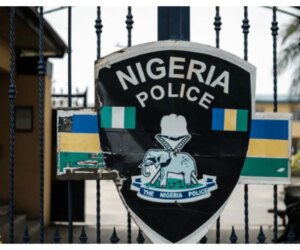For those of us in the media, the mood for the 65th anniversary of our nationhood was spoilt on the eve of the occasion by the tragic passing of one of us, Miss Sommie Maduagwu, the lady anchor at Arise Television at her Katampe residence in the highbrow location in the nation’s capital, Abuja.
Initial report was that a gang of (armed) criminals now swarming Abuja, like ants on sugar, stormed her three-storey residential building and shot at her, after which she was ferried to the hospital for medical attention. The hospital, we were told, refused to attend to her because there was no police report, without which a victim of a gunshot would not be touched even with a 10-metre pole, despite the Hippocratic Oath the personnel had taken to save lives first before any other thing.
Moments after that report, my mind careered down the memory lane. In recent years, there have been instances where gunshot victims hugged their early graves because doctors would not attend to them without police reports to prove that they were not criminals deservedly wedged between the jaws of death, even when the federal government had put in place, since 2017, a law compelling hospitals to attend to victims without tendering police reports.
One glaring, controversial instance, even involving the police, will suffice here. In 2018, after the law came into effect, a member of the National Youth Service Corps (NYSC), Miss Linda Igwetu, was returning from an end-of-service party in the wee hours of the morning in the company of others when they ran into a police checkpoint around the Cedi Plaza, Abuja. Linda was shot at by one of the officers.
According to eyewitnesses, the victim was rushed to the Garki Hospital, Abuja, for medical attention, but the hospital authorities were alleged to have refused to attend to her unless a police report was tendered, even with the presence of policemen who accompanied her to the hospital. Linda was said to have bled to death, watched by medical personnel. However, the hospital authorities refuted claims that a police report was demanded before treating the victim, describing the allegation as malicious.
In a statement, the Medical Director of the hospital, Dr. Nyomudim Essen, said the report that the hospital allowed her to bleed to death while awaiting police report was false.
He argued that the hospital “does not demand a police report before attending to trauma patients at its accident and emergency department,” stressing that it was a tradition that it did not compromise.
The hospital also explained that the late Miss Igwetu was brought to the hospital at 3.05 a.m. on July 4 in a precarious condition and was given a blood transfusion and limited surgery by the doctor on duty. Till today, nobody knows whether the truth has been established and punishment meted out.
A day after Sommie’s passing, fresh facts emerged about the circumstances surrounding the tragedy. The version now making the rounds, while the police are still investigating the cause of her death, is that the young, vibrant lady jumped from the top floor of her residence to escape the armed invaders. After the robbers had fled the scene, neighbours rushed to her rescue and ferried her to the hospital unconscious. The doctors battled to revive her but to no avail.
The security challenges, including the menace of One Chance, currently dogging the Federal Capital Territory (FCT) call for a pragmatic deployment of technology to police the territory. There was a time when the federal government came up with an initiative to drag the entire City Centre under a CCTV watch.
During the past administration of Dr. Goodluck Jonathan, plans were put in place to install surveillance cameras in major cities and towns as a way of boosting security especially in public places. The idea was received in several quarters with mixed feelings. The reason being that it was not the first time the government was embarking on such an initiative that is critical to crime prevention and detection as practised in many parts of the world.
The idea of throwing up close-circuit television (CCTV) cameras into the atmosphere was initially mooted a couple of months before the October 1, 2010 bombing in Abuja that claimed the lives of 16 innocent people.
When the Jonathan administration eventually gave action to the CCTV initiative, the laudable project was consumed by the monstrosity called corruption. About 1,000 surveillance cameras that dotted selected highbrow locations in the FCT, valued at a whopping sum of $430m, which many believed were over-priced, began to malfunction from day one. This was also partly due to the fact that the contract for the supply of the cameras was awarded to crony contractors who lacked the competence to do a perfect job.
When the Buhari administration emerged after Jonathan, it stepped up to complement the police efforts in crime prevention and detection using the CCTV cameras. Many believed that the initiative would work under his watch. Its availability, without a doubt, would make policing easier all over the country as it will also go a long way in preempting criminal activities because these undesirable elements would know they are being watched and thus keep off areas in which they are installed. Surprisingly, for the period of eight years that the administration ran the affairs of the nation, it could not wean itself from the lethargy that afflicted its predecessors. The initiative was desultorily pursued and later abandoned.
However, CCTV is not a foolproof way of eliminating crimes in any society. Unless it is protected, the gadgets are vulnerable to illegal tactics. Criminals will deliberately try to destroy it, though some outdoor cameras may have bullet-resisting housing. Government at all levels should take the issue of policing with CCTV very seriously, even as we hanker after the establishment of state police. Various state governments have provided the police with all manner of logistic supports like patrol vehicles. Effective policing goes beyond relying on physical methods as it is presently the case in this clime.
We will await the outcome of the police probe into the circumstances leading to Sommie’s demise. However, if it is true that she chose to jump rather than face the bullets, no one should blame her for taking that fatal decision. In such a situation, one’s survival instinct would go on overdrive, making so many options available to decide on within seconds.
Let me recall that in 2011, Kenyan long distance runner and 2008 Beijing Olympic marathon gold medalist, Samuel Kamau Wanjiru, took a similar decision when confronted with danger posed by his enraged wife who caught him (pants down) with a woman in their single-storey apartment. Sammy chose to leap from the balcony and crash-landed on the hard floor. Despite his athleticism, Sammy did not survive the fatal leap. He died from the injuries sustained at just 24.
I took a similar, though voluntary, leap as a teenager, hovering around 13 in Kaduna. I had been a movie slave from my kidhood and the passion took a dramatic turn when I assembled some neighbourhood kids to act an action-packed, stunt-filled drama in Kaduna. My brother-in-law had been posted to Kaduna on a relief duty at the General Hospital. I was hibernating with him and my elder sister, his spouse, in Jos, while waiting for my admission into a secondary school. And because he was so fond of me, he took me along.
On the fateful afternoon, after rehearsing my script for a couple of days, we decided to act out. As the lead actor, producer and director, one of the stunts was jumping down from a balcony like the Chinese actors were famed for. Unknown to me that such leaps were unreal, I took off from the balcony of our apartment like a helicopter and landed rather awkwardly on the concrete floor. The neighbourhood kids caught their breath and marveled at my feat.
I tried to spring up to a standing position to continue with the acting but I felt as if my tiny legs had vanished. A feeling of nausea overwhelmed me. Then, I began to see stars twinkling in broad daylight! I also witnessed a miracle: Neighbourhood buildings and trees were encircling or turning around me. My boys loaded my tiny frame into their arms and ferried me to our apartment. I lay on the rug consumed with body pain. Despite my condition, I still wondered how the actors in the movies did it from Olympian heights without having their skeletons broken into smithereens.
Later in the evening, my brother-in-law returned from duty and met me in a terrible shape. I lied that I had a bad fall while playing football. My friends confirmed my story. He quickly administered some painkiller drugs on me after which I was taken to the hospital for an x-ray in the event that I might have suffered a dislocation or cracked some bones. Fortunately, my young bones were intact but I suffered ankle dislocations. He managed to pump the truth out me. As a medical doctor, he was not convinced that the injury came from just playing football. He later gave me the length of his tongue, and that crazy stunt put paid to my acting ambition. Although I survived the leap, the thought that I would have become a cripple still haunts till today. Worse still, I could have gone the way Sammy Wanjiru.
In fact, anytime l hear Pentecostalists rendering the song ‘l can see everything turning around, everything turning around, everything turning around in my favour…’ my mind will race back to the Kaduna drama that could have claimed my life!
May the good Lord grant Sommie’s kind soul eternal rest and her family, friends and colleagues the fortitude to bear the painful passing.








